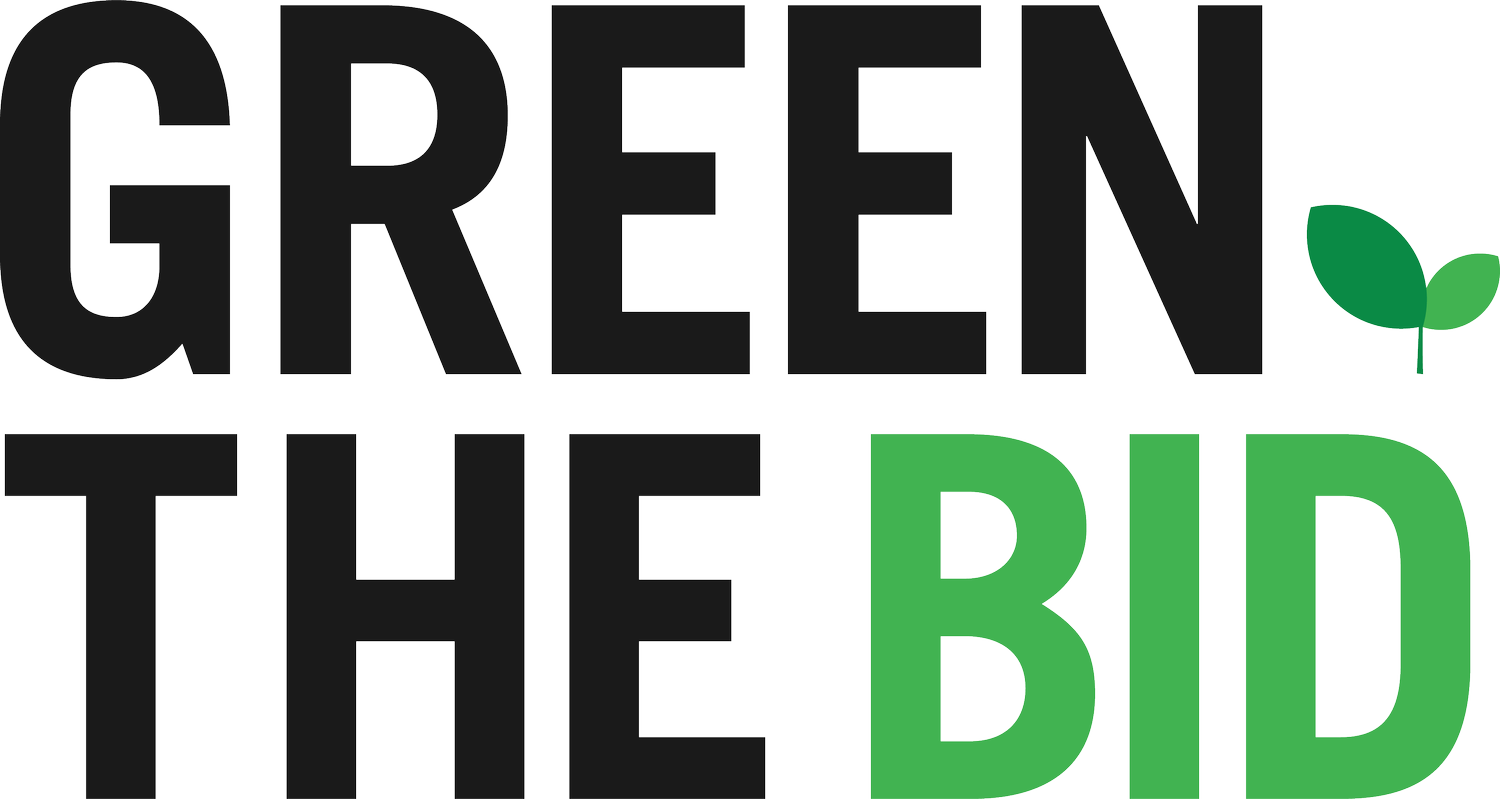Fall 2025 Member Meeting Recap
Green The Bid's Fall 2025 Meeting, led by Co-founders Michael Kaliski, Jessie Nagel, Kat Friis, and Julian Katz, focused on green production training – aimed at producers and designed for full-scale commercial production, but valuable for everyone.
Michael Kaliski began the meeting by reviewing essential terms for the sustainable production effort. "We always talk about 'sustainability' because it's the main word that we use for these practices. But what we’d like to invite you to do is to find ways to reach beyond that. Sustainability really is just making things not worse than they are. Regenerative is leaving the community or the location or the people you’re working with better off than when you got there,” he said. Some examples of regenerative practices following a project included organizing E-waste drives, clothing swaps, or set clean-up days. "Another term we hear is 'zero waste' and 'carbon neutral,' both with a lot of potential to be greenwashed. We push for minimal carbon through better diversion and minimizing carbon,” Michael explained.
Jessie Nagel spoke next on the power of community within the sustainability effort. "The idea is that we're going to work together. When you look at GTB resources and the materials we've developed over time, they have been done alongside members of this meeting. Our member community works together so that we are advocating for ways and methodologies that work within the framework of how we do what we do,” she said. An important distinction to make is that GTB does not come to set or act as a consultant for production projects. They provide resources for reporting processes, and their list of excellent, vetted consultants is the group that can help you collaborate on a particular project or give a broader perspective for your company. "These people in our ecosystem are just a part of a sustainable production,” she continued. "Everybody's responsible for looking at how they can practice these things within their own organizations or as individuals, like shifting to a green energy plan or composting in the office, if you are working in an office.”
Kat Friis stepped up to discuss the specifics of bidding out sustainable production. She explained that you begin planning in the production stage, and that when bidding and budgeting at the beginning of the job, it’s necessary to include a line item in your ballpark estimate for sustainability. She suggested that the line item be at least 1% of the production and post line item. "Like any other line item in your bid, if your scope changes on the project, your sustainability line item might potentially change. If you've added a shoot day, taken away a shoot day, changed locations, added more talent, or added more crew, all of those things feed into what your sustainability costs would be. It’s just communicating expectations that as an agency or brand, you’re expecting zero waste and minimal carbon production,” she said. "Make sure you let your partners know that you have set aside those costs for a consultant to manage the process or for the production partner to manage the process with the appropriate additions to their team.” As an agency or brand producer, you can direct your production partners to the GTB website for a list of consultants. "We always recommend that since this is a world that everybody loves data, share the data with your co-workers, with your agency, with your brand, with your clients."
Julian Katz pressed the point that through sustainability reporting, production companies can justify budgets and find the balance for a carbon-conscious yet cost-efficient project. He outlined the standard data points that should be included in a sustainability report: waste disposition (landfill vs recycling/composting), hydration impact, material sourcing, e-waste quantities, and carbon consumption summaries. “It’s the 90% diversion metric that you want to try to achieve,” said Julian. Detailed carbon accounting requires extra budgeting and must be a line item from the beginning of production for consultants or managers to agree on. Reports should be delivered within three weeks post-production and followed by review meetings to discuss outcomes and improvements with the agency, brand, production, and/or consultant teams.
The meeting closed with an emphasis on making sustainability a line item on bids, planning to ensure sets are equipped with regenerative infrastructure (recycling/compost bins, e-waste bins, sustainable catering, reused costumes and props, no car idling, etc.), and collecting data to document carbon and waste diversions. All of these practices and more can be found on our website, with resources for a list of vetted consultants to walk you through the process of sustainable production.


